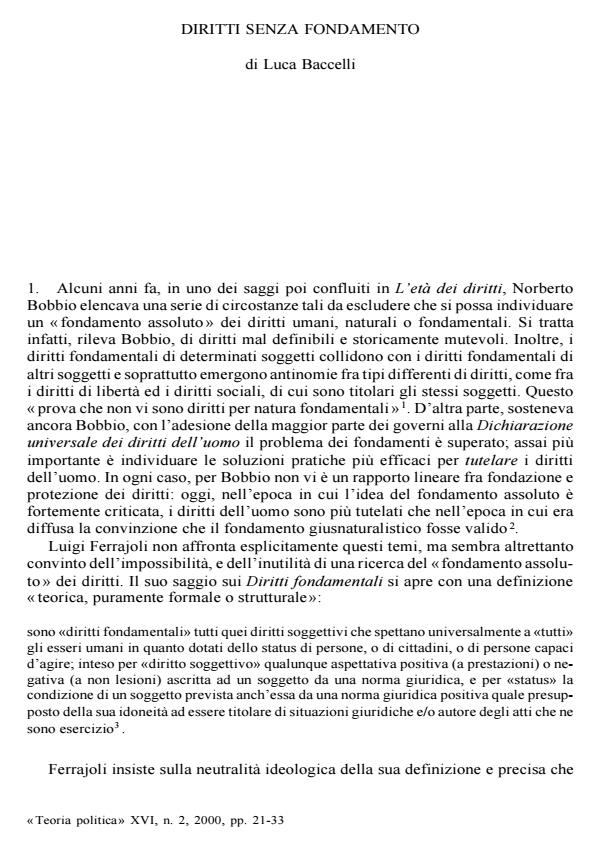Diritti senza fondamento
Journal title TEORIA POLITICA
Author/s Luca Baccelli
Publishing Year 1 Issue 2000/2
Language Italian Pages 13 P. File size 41 KB
DOI
DOI is like a bar code for intellectual property: to have more infomation
click here
Below, you can see the article first page
If you want to buy this article in PDF format, you can do it, following the instructions to buy download credits

FrancoAngeli is member of Publishers International Linking Association, Inc (PILA), a not-for-profit association which run the CrossRef service enabling links to and from online scholarly content.
Luigi Ferrajoli's argument starts with a strictly formal definition of fundamental rights. This approach seems to imply that the search for an "absolute foundation" of rights is impossible, and not useful. On the other hand, Ferrajoli maintains that his definition "founds" key substantive theses on equality, property, democracy, and citizenship. But in his replies, Ferrajoli admits that the expression "to found" is too strong. A second issue is related to the universality of fundamental rights. In Ferrajoli's theory, such rights are "universal" in that they belong to a universal class of subjects. But their validity is not accepted by the universality of human beings: the language of rights bears the signs of Western legal culture. The translation of that language in other idioms is problematic, and the universalistic approach presents important risks. Ferrajoli's recognition of the links between the language of rights and social and political conflicts should be radicalized. The recognition fits with the active character of rights, as expressions of the activity of claiming, and opens a possible path to inter-cultural dialogue. This recognition alludes also to a "political" conception of citizenship, immune from particularism and not exclusive.
Luca Baccelli, Diritti senza fondamento in "TEORIA POLITICA" 2/2000, pp , DOI: